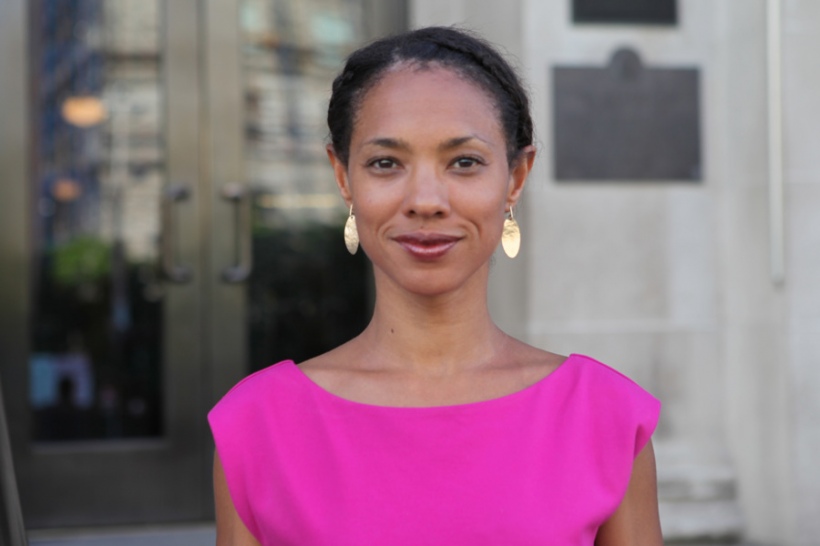News
Investigating the legacy of colonialism
Kaiama L. Glover MN ’95 CEF ’05 on Paris, History Detectives, and educating the public

Dr.Glover was a host on the 11th season of PBS’ History Detectives Special Investigations. (photo courtesy Nazenet Habtezghi)
While January’s events at Charlie Hebdo in Paris shocked the world, they were just one symptom, says Dr. Kaiama L. Glover MN ’95 CEF ‘05, of a larger problem facing postcolonial France.
A 1995 Mellon Fellow and 2005 Career Enhancement Fellow, Dr. Glover is an associate professor in the French Department at Barnard College, Columbia University, where her research and teaching focus on colonialism and postcolonialism, African cinema, and francophone literature, particularly that of Haiti and the French Antilles. She also appears on the PBS show History Detectives.
As a scholar of postcolonialism, Dr. Glover calls the shootings at Charlie Hebdo and the subsequent hostage-taking in Paris “an exceptional, highly mediatized incident—just one example of a much longer and much wider ranging phenomenon.”
At issue, Dr. Glover explains, is an unresolved ambivalence between France and its colonial past. Not only did France plan to exploit the natural and human resources of the people it conquered, it also made a mission of “civilizing” the people of its territories.
“This seemed all well and good when these people stayed where the French found them,” says Dr. Glover. “But obviously, since World War II, since the decolonization and independence between the mid-1940s and 1960s, France has had to deal with the legacy of that mission.” More and more residents of former French colonies have made their way to France, seeking opportunity.
This influx has created a disconnect between the promise of an idealized French Republic that ensures liberty, fraternity, and equality to its people and those who find themselves in a context “where their ethnic and cultural identities aren’t compatible with France’s idea of itself,” explains Dr. Glover.
“France has not yet figured out how to deal with what are essentially unwelcomed guests, but guests that were invited,” she says.
Understanding events and history within their proper context is something that Dr. Glover has remained committed to throughout her career. It was the 1946 revolution in Haiti that sparked her imagination, as a doctoral candidate in French and Romance philology, and set her scholarly direction. Examining the role of the Surrealists and their influences on the revolution, she “was fascinated by the idea that poetry could foment revolution in this context where it hadn’t really panned out that way in Europe.”
Her current work with History Detectives has Dr. Glover bringing history into context for much larger audiences. When they approached her about being a host of the show, the producers pitched it as a way to reach more people than she would in her entire career at an Ivy League university. “That really resonated with me,” she says, “the idea of being in conversation with and educating a public.”
History Detectives aired its eleventh season last summer, with “investigations” ranging from Jimmy Hoffa to the Texas servant girl murders. Dr. Glover appreciates how the show “has taken some of these sensational things and made an effort to contextualize them with broader issues of race, and class, and gender.”
###
This story appeared in our Spring 2015 newsletter. To view the full newsletter online, click here.

